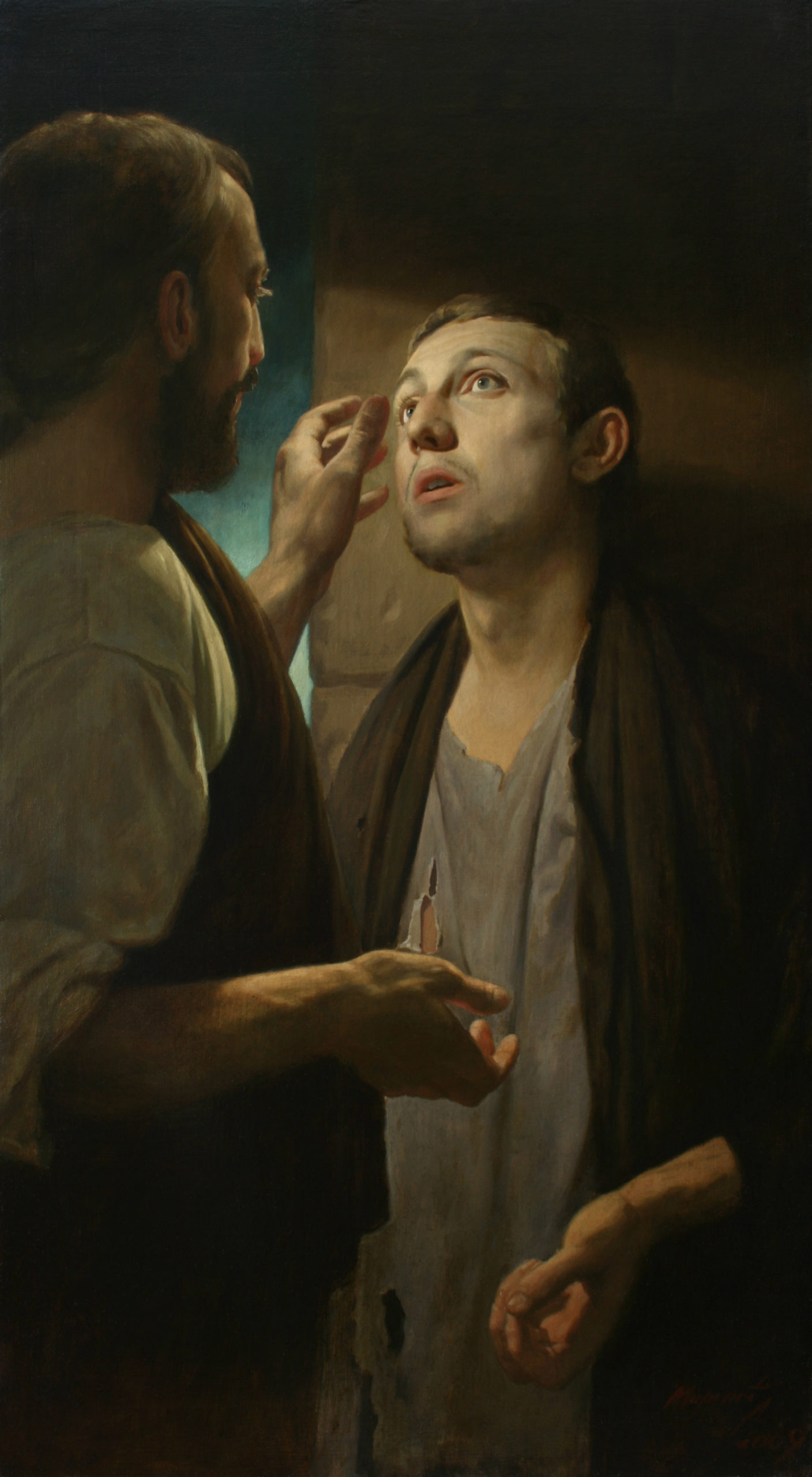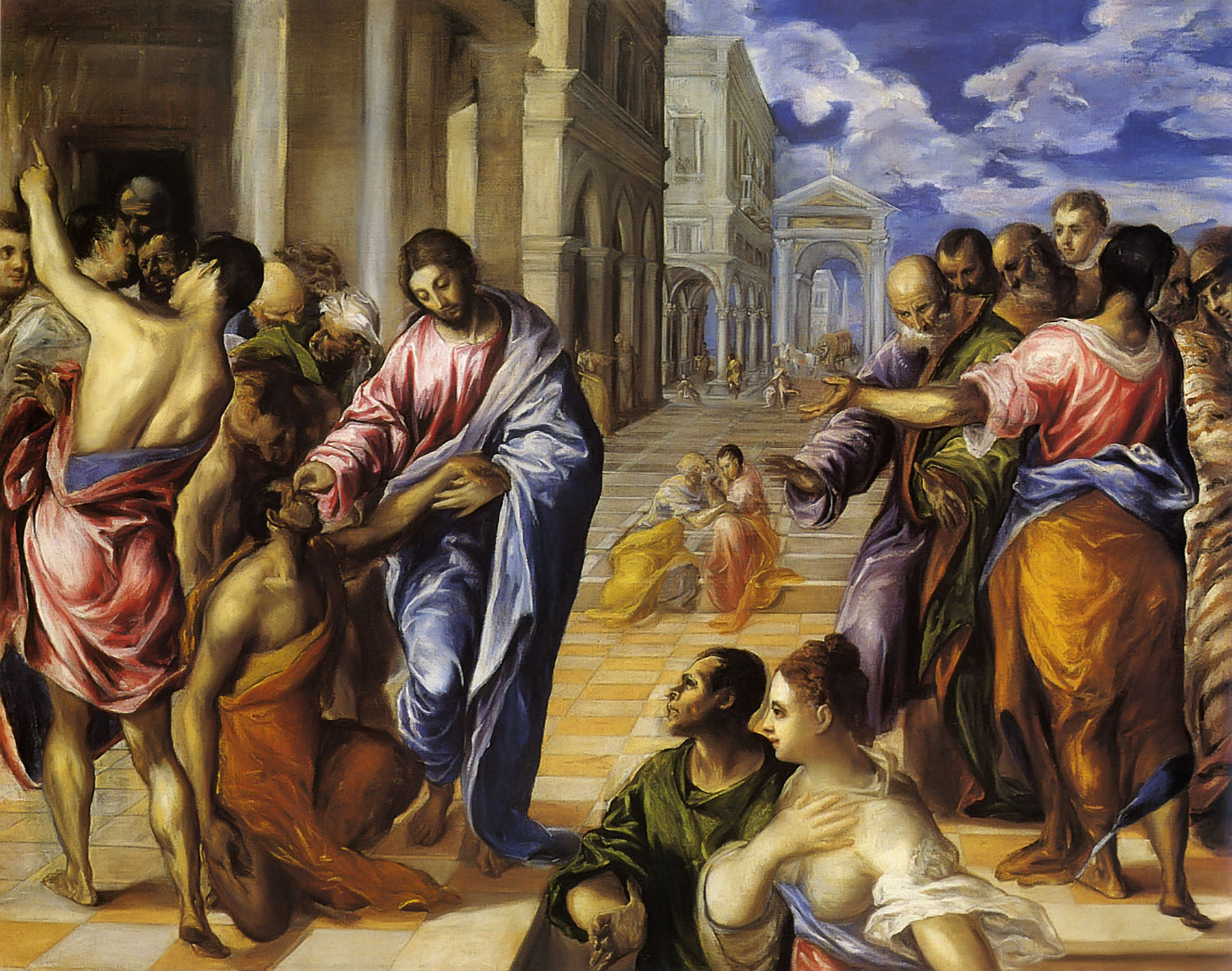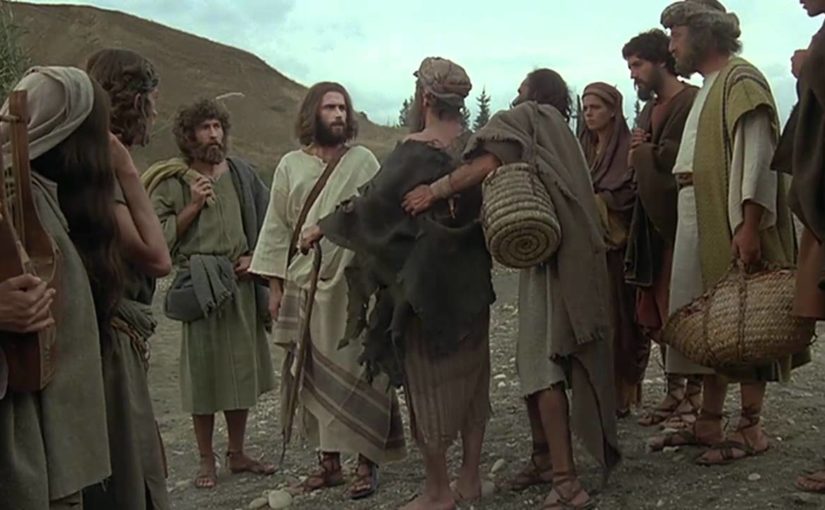I don’t know about you, but I feel like today’s Liturgy of the Word starts off by giving us all a slap in the face. And it’s needed. How many of us judge others without even getting to know them? How often do we decide who people are and what they’re like just by a first glance, or where they live, or even who they know? It’s a habit we learned in junior high school, or maybe even earlier, and we never seem to outgrow it. Shame on us for that, because God is clear with Samuel: “Not as man sees does God see, because man sees the appearance, but the Lord looks into the heart.” So we have to stop judging others before we get to know them; we have to learn to see them as God sees them. We need to see with the eyes of God.
Whenever I hear this reading, I think of my dad. He was the typical Irish guy who never met a stranger, and it was frankly a little irritating to go grocery shopping with him. He’d bump in to a couple of people he knew while we were shopping, one or two more in the checkout line, and probably at least one more while the rest of us were loading the groceries in the car! But that was because dad was a man who always seemed to see the best in people. At his wake, we were all overwhelmed by the incredible number of people who came and shared with us how they were inspired by him and encouraged by him, all because Dad saw something special in them. I think dad had some inkling of the vision God wants us to have in this first reading.
So the theme for this week’s liturgy is vision and light. The gospel gets at that pretty quickly, healing the man born blind in the first couple of minutes of what is admittedly a pretty long reading. But what’s the point? How does that affect us? I’ll tell you how it affects us: the man born blind is us. We all have affected vision: that’s why the first reading is such a slap in our faces. So we have to decide today if we are the man born blind who is easily and quickly healed, or if we want to be the Pharisees who, at the end of the day, never regain their sight because they just don’t want to.
So maybe you’re asking the same question those Pharisees asked, “surely we are not also blind, are we?” Of course we are. That’s why we have Lent: to realize our brokenness and to accept the healing power of Christ. Lent calls us to remember that we are dust, that we are broken people fallen into sin, but that none of that is any match for the power of Christ risen from the dead, if we just let him put a little clay on our eyes.
Today’s Gospel then is a kind of journey to clearer vision. We are all born blind, in a sense, and it takes the presence of Jesus to clear our vision. Just as the man born blind was sent to the pool of Siloam, we too are sent to the waters of baptism, which clears our eyes and helps us to really see. In baptism, the darkness of life is transformed by the presence of Christ, the Light of the World. During the course of all the questionings that follow, the man’s vision becomes clearer and clearer. At first he doesn’t know who Jesus is or where to find him. Later on he testifies that Jesus is a prophet and finally, with the help of Jesus’ instruction, that Jesus is the Son of Man and worthy of worship. We make this same journey ourselves. From the waters of baptism, we need to continue the conversation and return to Christ again and again to grow in our faith. We grow in the way that we see Jesus through our lives. Our faith when we were young is not the same faith that works for us later in life. At one point Jesus is a friend walking with us on life’s path; later on he might be a rock that helps us in a particularly stormy time of life. Still later, he might be the one calling us to become something new, something better than we think we can attain. Jesus is always the same, but we are different, and Jesus is with us at every point of life’s journey, if we open our eyes to see him.
Traditionally, today is Laetare Sunday – laetare being Latin for “rejoice.” That’s why we’re wearing these rose-colored vestments today. We are now pretty much half way through Lent, and with eyes recreated by our own trips to the pool of Siloam – the waters of baptism – we can begin to catch a glimpse of Easter joy. Laetare Sunday reminds us that even in the penance of Lent, that it’s not penance for penance’s own sake: there is reason for rejoicing. It might be good, then, to ask ourselves, what in the world gives us cause to rejoice today, here and now, in our own lives?
That’s the “homework” I’m giving you for this fourth week of Lent. In your quiet times of reflection – even if it’s only two minutes – I invite you to take time to ask God to open your eyes and help you see your blessings. Whether it’s your health, or your family or friends, your community, your work or your recreation – whatever it is, take the time to name it, and then offer a brief prayer of thanks in your own words to God who gives you everything. If this isn’t something you’ve ever or often done, maybe do that as much as you can this week. You might find yourself discovering blessings that you didn’t realize how much you loved.
Today’s Liturgy is a call for all of us to attend to our vision. Do we see others as God sees them? Do we even see ourselves as God sees us? How do we see Christ at work in our lives and in our world? Where we encounter obstacles to the clear vision that we must have in this darkened world, we should set them aside and allow Christ to anoint our eyes so that we can see as God sees, this God who sees into the heart. Then as the darkness that exists in our own lives is transformed to light, maybe our little corner of the world can know compassion amidst sorrow, comfort amidst mourning, mercy against intolerance, love against hatred, and the peace that passes all of our understanding in every place we walk. May we carry the flame of God’s love into our world to brighten every darkness and bring joy to every sorrow. May the Morning Star which never sets find this flame still burning: Christ that Morning Star, who came back from the dead, and shed his peaceful light on all humankind, [the Son of God] who lives and reigns for ever and ever. Amen.






You must be logged in to post a comment.